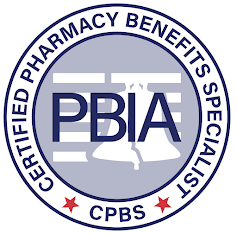Study: Utilization management has ramped up in Part D and other notes from around the interweb:
- Study: Utilization management has ramped up in Part D. Utilization management in Medicare Part D has become more restrictive over the last decade, even when compared to Medicare Advantage prescription drug plans, according to a new study. The study, conducted by researchers at the University of Southern California and Blaylock Health Economics and published this week in Health Affairs, found an increase across multiple types of utilization management, including prior authorization, step therapy and formulary exclusions, between 2011 and 2020. On average, 31.9% of drugs were restricted in some fashion in 2011, which grew to 44.4% by 2020, according to the study. By the end of the study window, 44.7% of formularies restricted brand-name-only drugs.
- Best Pharmacy Benefit Consultants for Cost-Effective Drug Plans. In the complex world of healthcare and pharmaceuticals, managing costs while ensuring the best possible care can be a daunting challenge for businesses of all sizes. Pharmacy Benefit Consultants (PBCs) play a crucial role in navigating this landscape, offering expertise that can lead to significant savings and more effective drug plan management. This article delves into the importance of PBCs, what to look for when selecting a consultant, and how they can transform the cost-effectiveness of drug plans.
- 5 ways to improve your PBM procurement process in 2024. Many self-funded plan sponsors struggle to manage the cost of pharmacy benefits and rely on non-transparent contract guarantees to hold PBMs accountable. Meanwhile, drug spending continues to compound at an astonishing rate in defiance of the savings promised during the procurement process. As a former pharmacy program director for a plan covering more than 16,000 lives, I can tell you that it is possible to stop the “games” PBMs play, control costs, and ensure that all contractual guarantees are met, especially in scenarios where a PBM won’t guarantee an all-in per member per month (PMPM) cost for the year. Understanding the problem is a part of the solution, but making meaningful changes to the way plan sponsors and brokers evaluate PBMs is where the real opportunity lies.
- Mark Cuban to CEOs: ‘If you’re using a Big 3 pharmacy benefits manager, you are getting ripped off. Two years ago, Cuban’s companies were self-insured, with him effectively writing personal checks for out-of-pocket health care expenses. As Cost Plus Drugs got off the ground, he says he compared the prices of generic prescription medications he’d been paying for to those offered by his new pharmacy. “What we spent $160,000 on at the [Dallas Mavericks], we could have purchased for $19,000 for Cost Plus,” he tells Fortune. “We decided once that plan ended last year, we were going to replace it, and so I wanted to go through the entire process of understanding what I did right or wrong.” He first turned to the employee benefits consultant who had assured him he was getting a great deal—someone whose advice also cost $30 per employee per month. “That’s insane, that was millions of dollars,” Cuban says. “The person who put me into a program where I was paying eight times more than I should have for generic medication, they’re done.”
